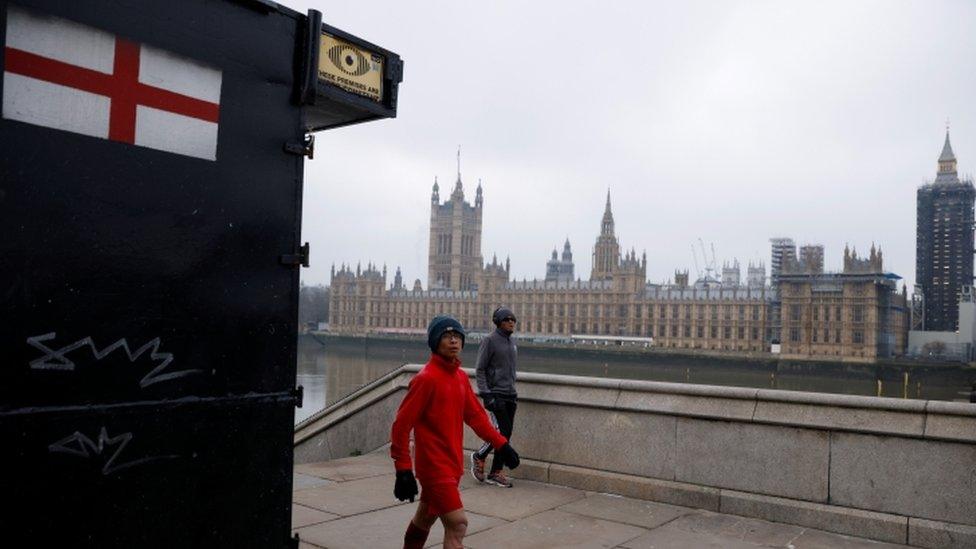Boundaries review: The ancient city of Chester being split in two
- Published
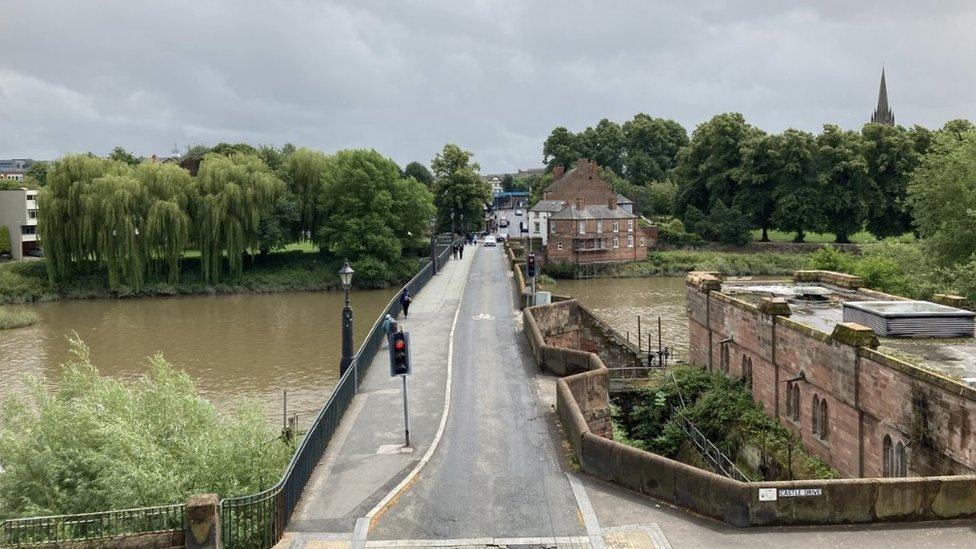
The proposals for redrawing the UK's electoral map will mean Chester is split in two
The city of Chester traces its history back 2,000 years but now the ancient city faces being split into two on the political map.
It all follows a boundary review, which means the areas south of the River Dee will have a different MP from the rest of the city.
But what does that mean for those who live there?
Originally founded as a Roman fortress Deva, Chester has a long and proud history.
Even in the Roman era, the south of the river was integral to the development of the area.
A site in Handbridge was a quarry used to build Chester's iconic City Walls. Today, there is still a shrine to the goddess Minerva there.
But while this was a key part of what became Chester back then, now it faces becoming separated from the rest of the city - politically speaking at least.
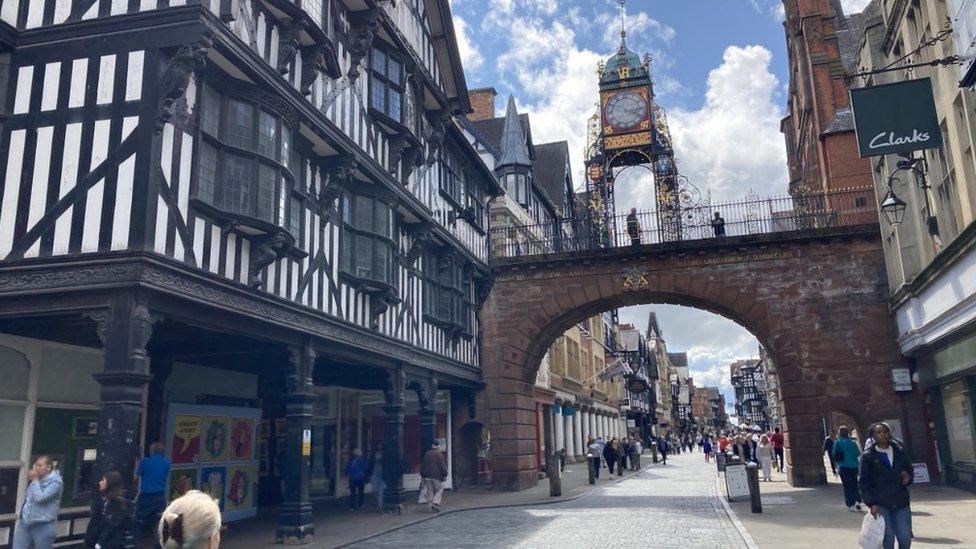
Chester is famous for its Roman ruins and Tudor buildings
The Boundary Commission has been undertaking a review of all of the country's constituencies. The aim is to make each one have a similar size population.
It has recommended the current City of Chester constituency is abolished and replaced with two new constituencies - Chester North and Neston and Chester South and Eddisbury.
The River Dee - a natural feature that will have fuelled the area's growth - is now the divide.
Some wards such as Handbridge Park, Lache and Christleton and Huntington will now become part of a much more rural constituency which borders Shropshire and Newcastle-under-Lyme at its southern part.
The Boundary Commission admitted it was controversial. It said when it initially proposed to split Chester the plans were "overwhelmingly opposed".
Many in the area are not happy with the change.
Professor Keith Milsom and Paula Milsom live in what would be the new Chester South and Eddisbury constituency.
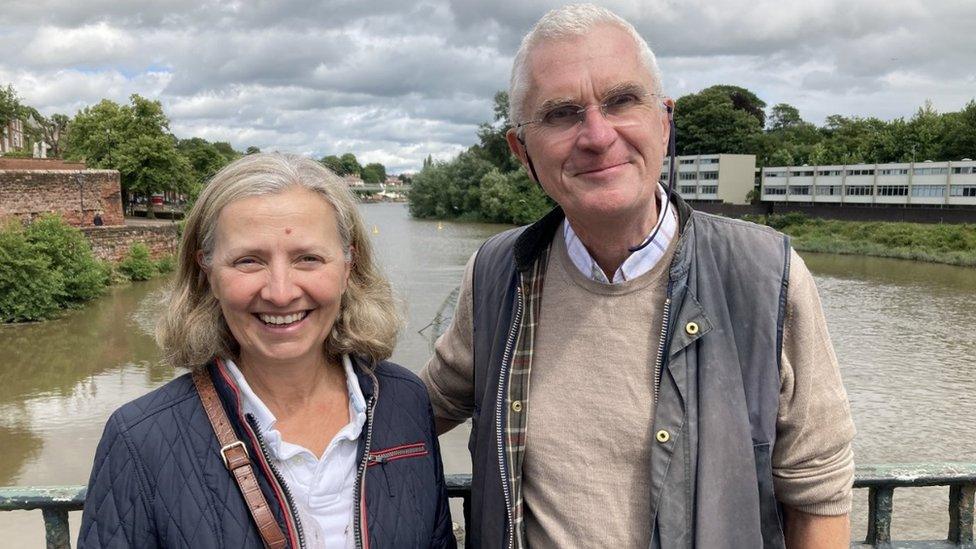
Paula Milsom and Professor Keith Milsom said the changes "don't make sense"
"We don't like it," Mrs Milsom said of the change.
Prof Milsom added it "seems a little odd".
"It seems a little unrealistic, really, seeing as we're suburban city dwellers and our constituency is essentially a rural constituency," he said.
"We have family out in rural Cheshire and we understand that constituency and that makes sense for them," added Mrs Milsom.
"But it doesn't make sense for us here in town."
Those involved in local politics also have concerns.
Samantha Dixon has been the MP for the seat since winning a by-election in December.
The Labour politician is planning to stand for Chester North at the next election.
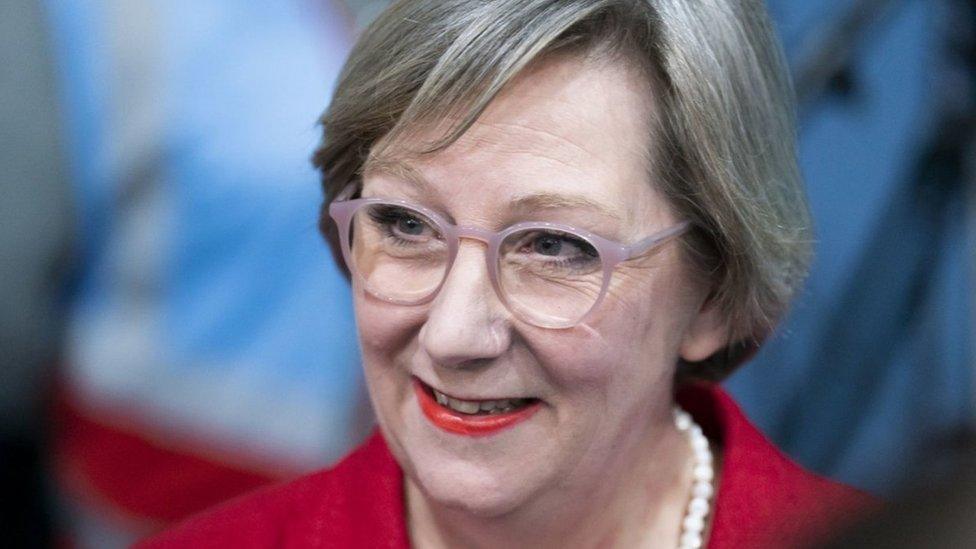
Samantha Dixon MP has criticised the planned boundary changes
"As the last MP to represent this wonderful city in its entirety, I feel very strongly that the Boundary Commission has done a disservice to Chester," she said.
"I feel the communities of Handbridge, Christleton, Lache are just as part of Chester as the other communities north of the river.
"But now they're going to be represented by an MP who has to travel all the way down across Cheshire."
Rob Herd stood for the Liberal Democrats for the City of Chester seat in the 2022 by-election.
"I think the premise of the Boundary Commission review is quite flawed really, in that they were asked to divide constituencies on natural boundaries.
"A natural boundary for us in the River Dee and is the heart and centre of our community and it's really divided our community into two constituencies."
He has concerns about the changes potentially discouraging people from getting involved in politics. He highlights Neston in particular being moved into the same constituency as much of the city centre.
"If people who live in that constituency don't feel that they're part of that consistency, then it's only going to further serve to disengage voters from the political process."

Rob Herd described the plans as "quite flawed"
The Conservative group has been asked for their thoughts but have not yet responded.
In its final recommendations, the Boundary Commission admitted there was still "very significant opposition" to the proposals in Chester.
"There was also an acceptance, albeit reluctant, that there was no other solution that did not either cause serious disruption across the whole area or require splitting multiple wards," it said.
But now with the proposals recommended to Parliament and set to be approved by MPs, these changes, no matter how unpopular with some people in the city, are to come into force for the next general election.

Why not follow BBC North West on Facebook, external, Twitter, external and Instagram, external? You can also send story ideas to northwest.newsonline@bbc.co.uk, external
- Published28 June 2023

- Published8 November 2022
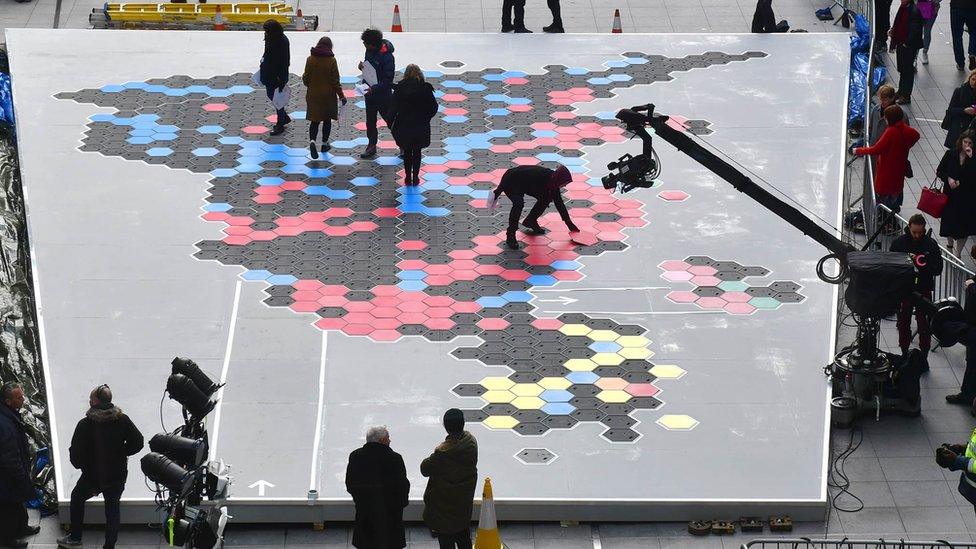
- Published12 September 2021

- Published5 January 2021
